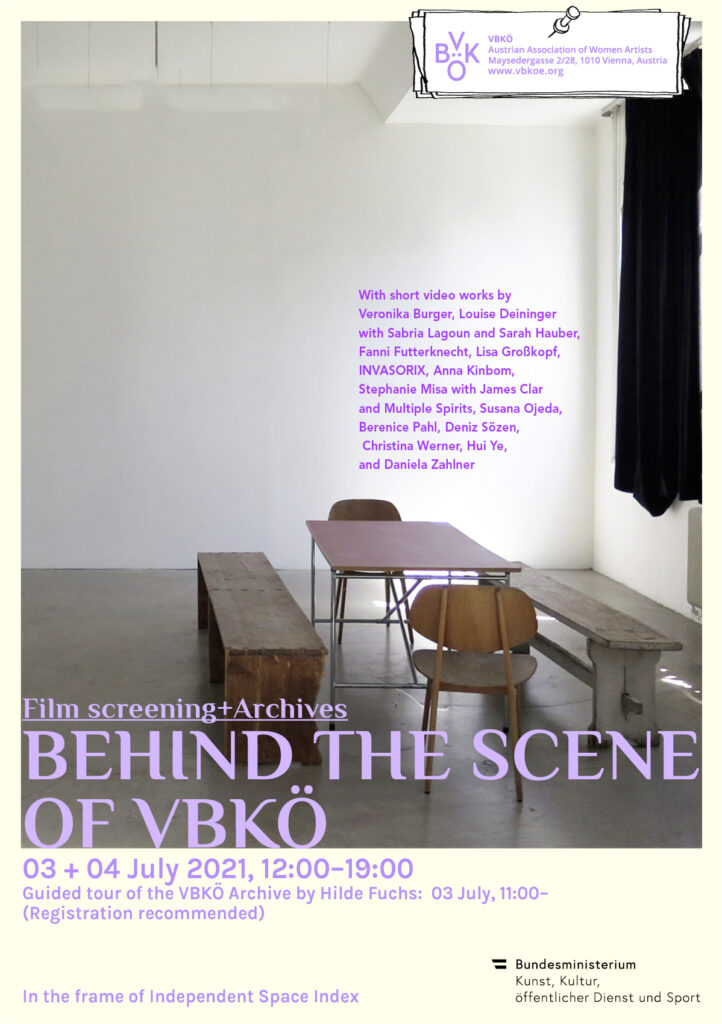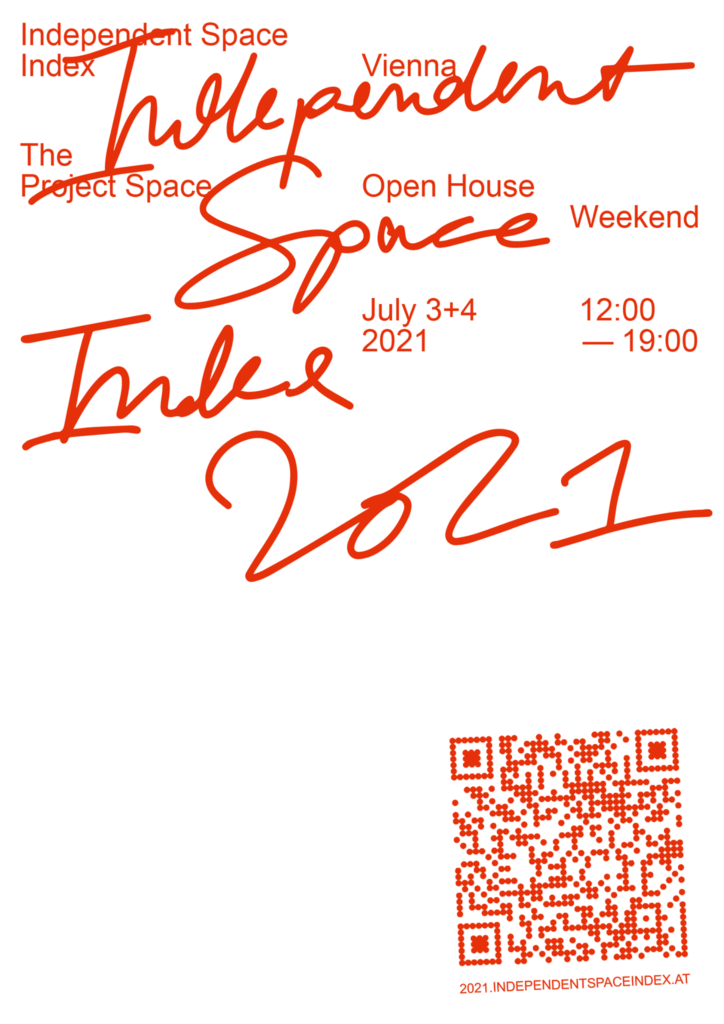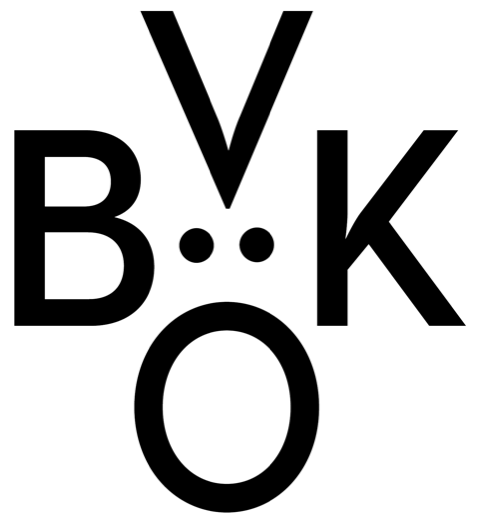Behind the scene of VBKÖ
Film screening+Archive
03+04 July 2021, 12:00–19:00
Guided tour of the VBKÖ Archive by Hilde Fuchs : 03 July 2021, 11:00–
(Registration recommended info@vbkoe.org)
In the frame of the Independent Space Index 2021
https://2021.independentspaceindex.at/info/
With short video works by Veronika Burger, Louise Deininger with Sabria Lagoun and Sarah Hauber, Fanni Futterknecht, Lisa Großkopf, INVASORIX, Anna Kinbom, Stephanie Misa with James Clar and Multiple Spirits, Susana Ojeda, Berenice Pahl, Deniz Sözen, Christina Werner, Hui Ye, and Daniela Zahlner.
These videos are an eclectic mix of rhythms, warm ups, makeup, personal journeys, and memories, reflecting the diverse voices and interests of the VBKÖ members.
The VBKÖ was founded in 1910 to promote women artists and stand for the improvement of their artistic, economic and educational conditions. The VBKÖ has survived through 111 years of both an emancipatory turn of the artist-women’s movement and the dark segments of history that followed, contradicting and complicating its mission of feminist agency. Today, the VBKÖ fosters contemporary artistic agendas, offering a space for experimentation and the promotion of political and activist work in order to establish a vital connection between historical debates and contemporary queer, feminist art production.
The VBKÖ Archive, which has been constructed by women artists themselves, like the VBKÖ itself has lived through and changed with history from the latter days of imperialism, to the fall of the Habsburg Empire and WWI, Austro-Fascism, the Nazi Era, but also through the progressive movements in the arts in Austria all the way to the current expansion of the European Union and the austerity cuts in public funding. Through knowledge gaps – resulting from historical and internal fractures in the association’s own history – history-writing and research, in regard to not only National Socialism but also the association’s class-specific and colonial entanglements, are more easily forgotten. One of the biggest challenges is, therefore, to continue building structures and initiating processes that enable the continual analysis of historical narratives anew, keeping processes of reflection active and making that knowledge public and discursive.


